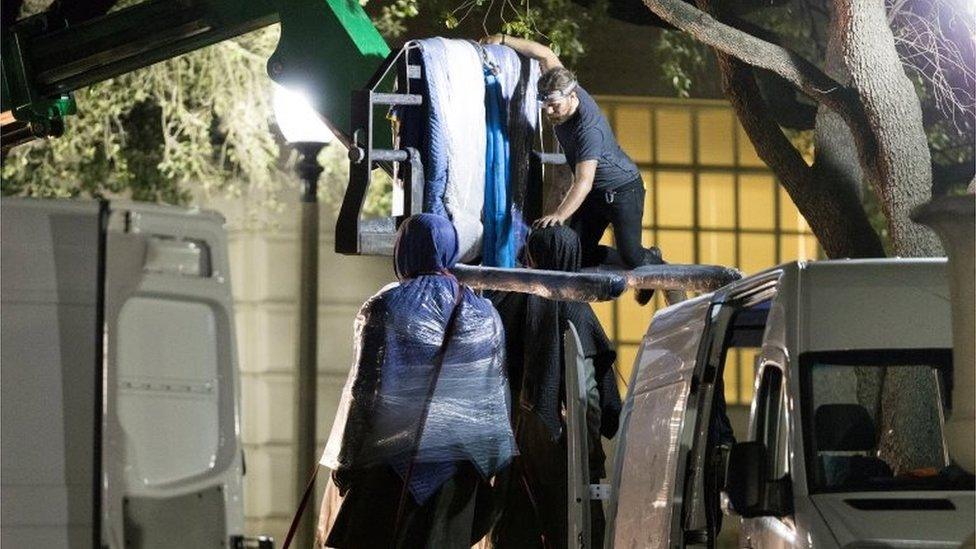Norfolk defends Nelson in 'white supremacist' row
- Published
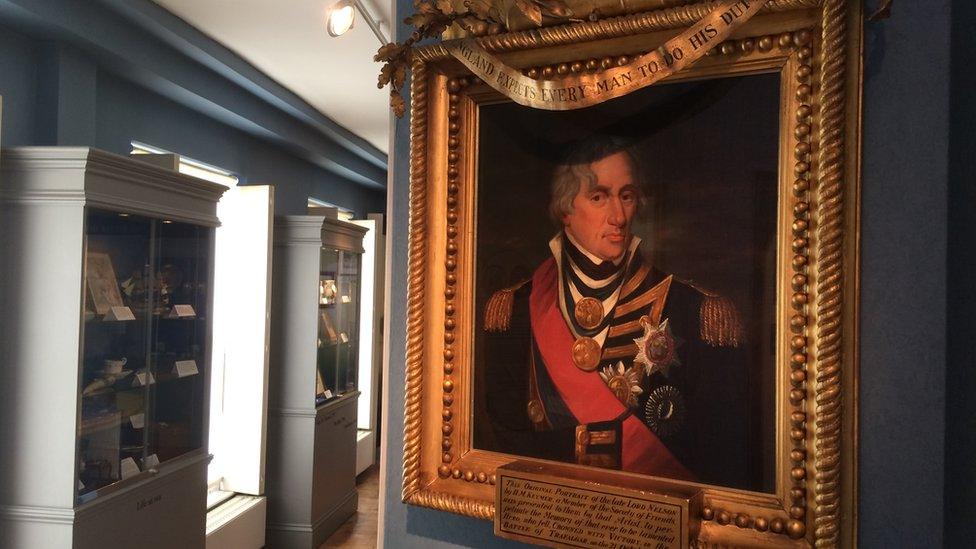
Celebrations of Nelson litter his home county of Norfolk
Supporters of Admiral Nelson have moved to defend him after a newspaper columnist described the naval leader as a "white supremacist".
The article, external by writer and broadcaster Afua Hirsch calls for Britain to rethink its colonial past.
It comes amid violence in America where statues of confederate figures connected with slavery have been torn down.
Nelson is venerated in Norfolk, the county where he was born and educated.
'Tyranny and rape'
In her Guardian piece, Ms Hirsch says: "One of the obstacles... abolitionists [of the slave trade] had to overcome was the influence of Nelson, who was what you would now call, without hesitation, a white supremacist.
"While many around him were denouncing slavery, Nelson was vigorously defending it."
She says Nelson used his position to "perpetuate the tyranny, serial rape and exploitation organised by West Indian planters, some of whom he counted among his closest friends".
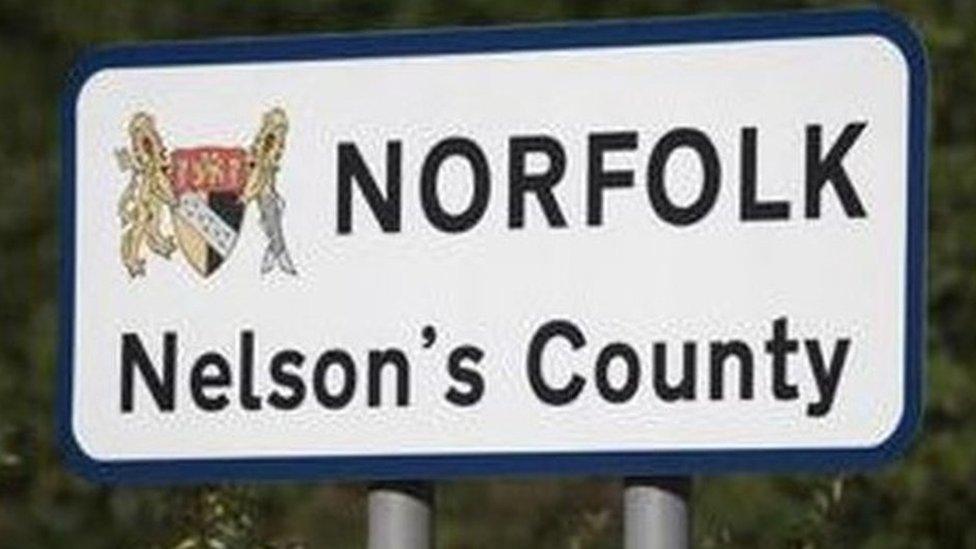
Admiral Lord Nelson is venerated as a "son of Norfolk"
Bruno Peek, the Yarmouth-based pageantmaster who led national bicentennial celebrations to Nelson in 2005, said the admiral was honoured by many nations.
"We cannot change the past," he said.
"Nelson is loved in Norfolk because he's from here. It's no different to any other famous person being celebrated in the place of their birth.
"His memory should be protected. He is one of our greatest maritime heroes."
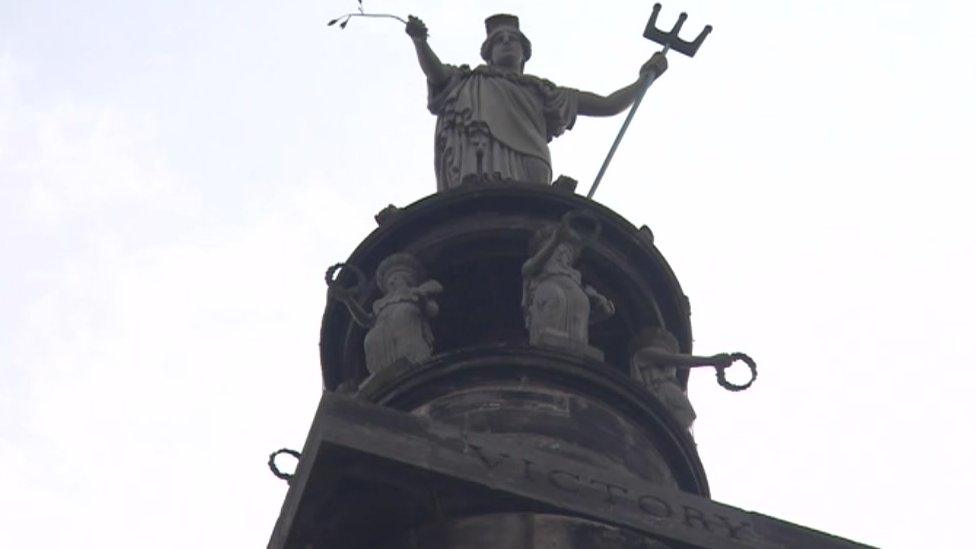
The Britannia Monument in Great Yarmouth is dedicated to Nelson and pre-dates the Trafalgar Square column
Defending the article on BBC Radio Norfolk on Wednesday, Ms Hirsch said she found people had "no idea that Nelson was an advocate of slavery".
"This is a man in a uniquely iconic position," she said.
"I would ask people in Norfolk why they've been content to put that part of history on a pedestal but not the full picture."
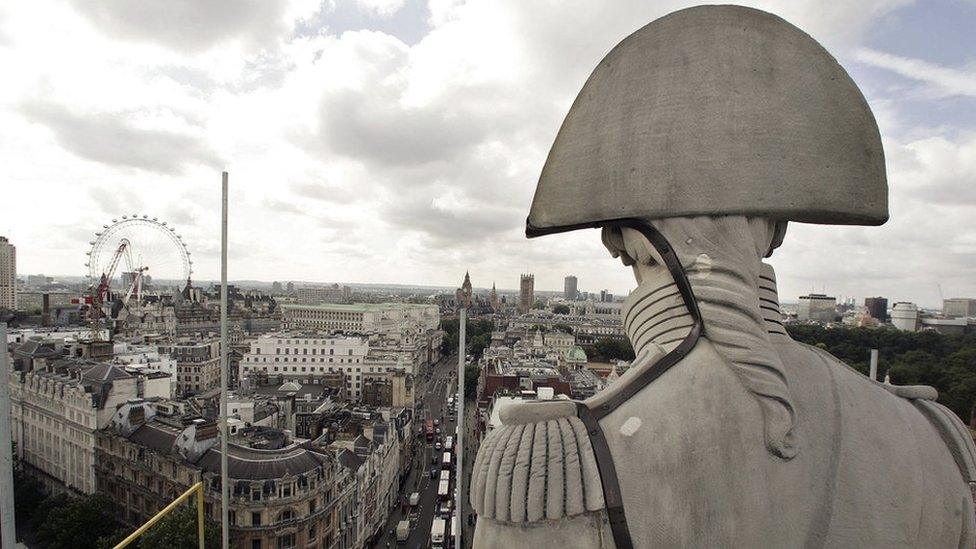
The view from Nelson's Column in Trafalgar Square
Great Yarmouth's mayor Kerry Robinson-Payne - the curator of the town's Nelson Museum - said: "Nelson is an adopted son of Great Yarmouth and loved by people in the town.
"Nelson was revered by his sailors, of all nationalities. He looked after all his men no matter where they came from."
- Published17 August 2017
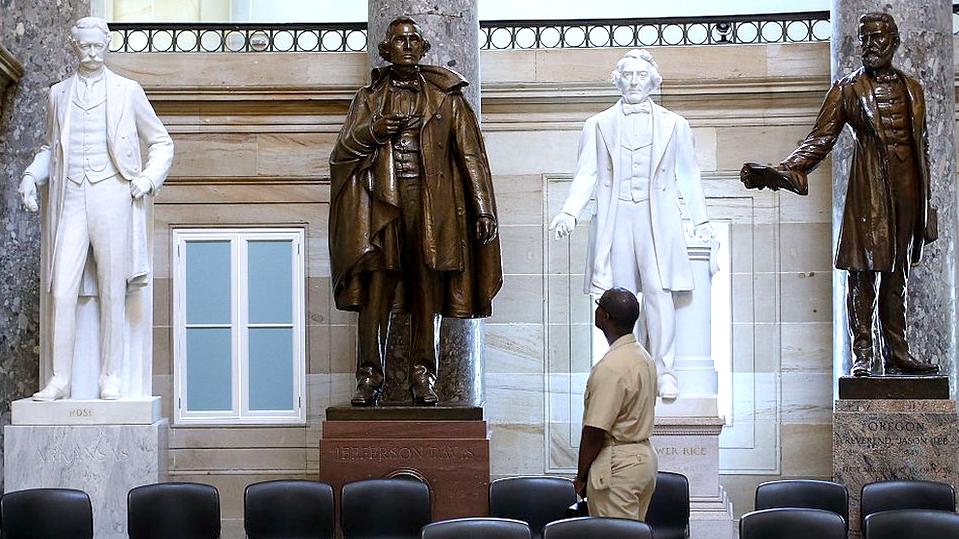
- Published21 August 2017
